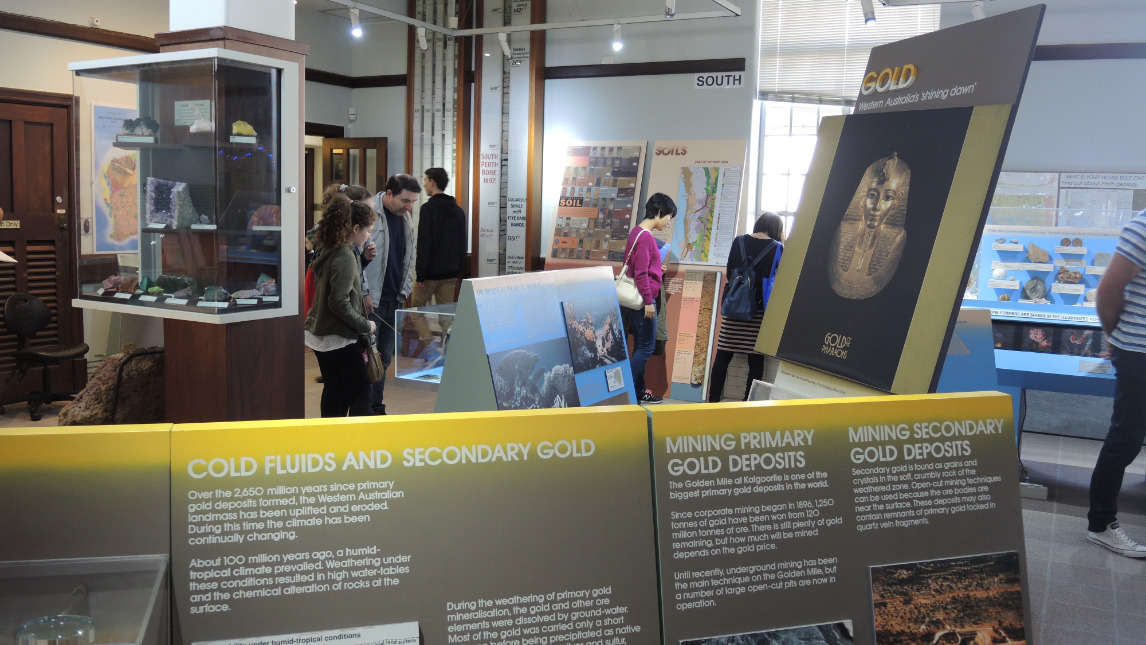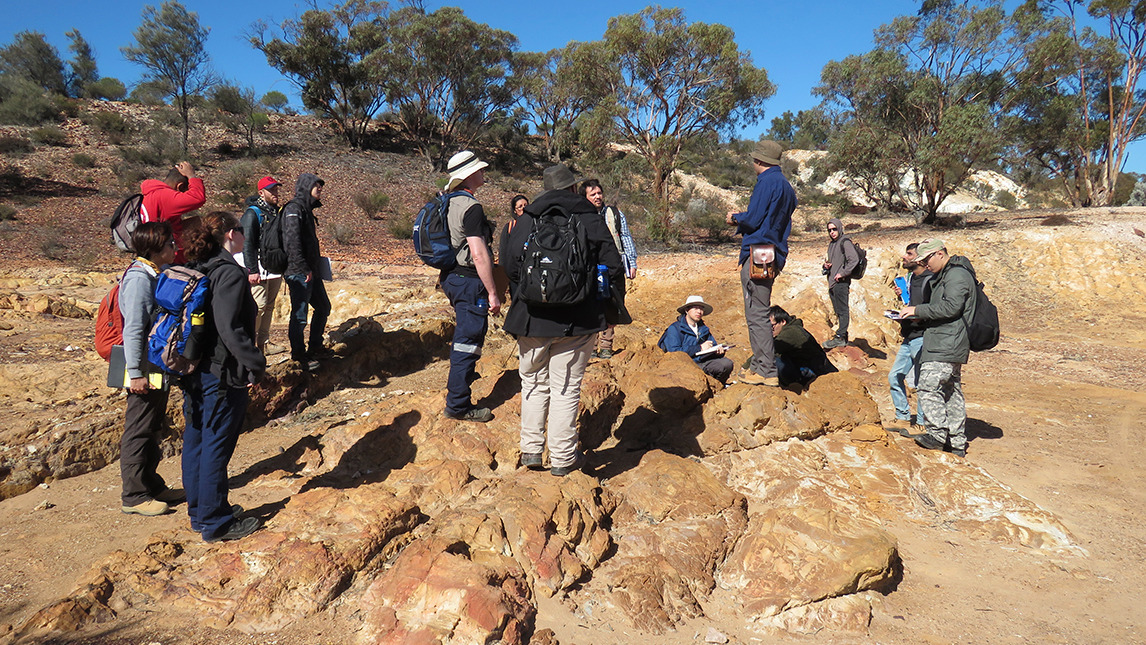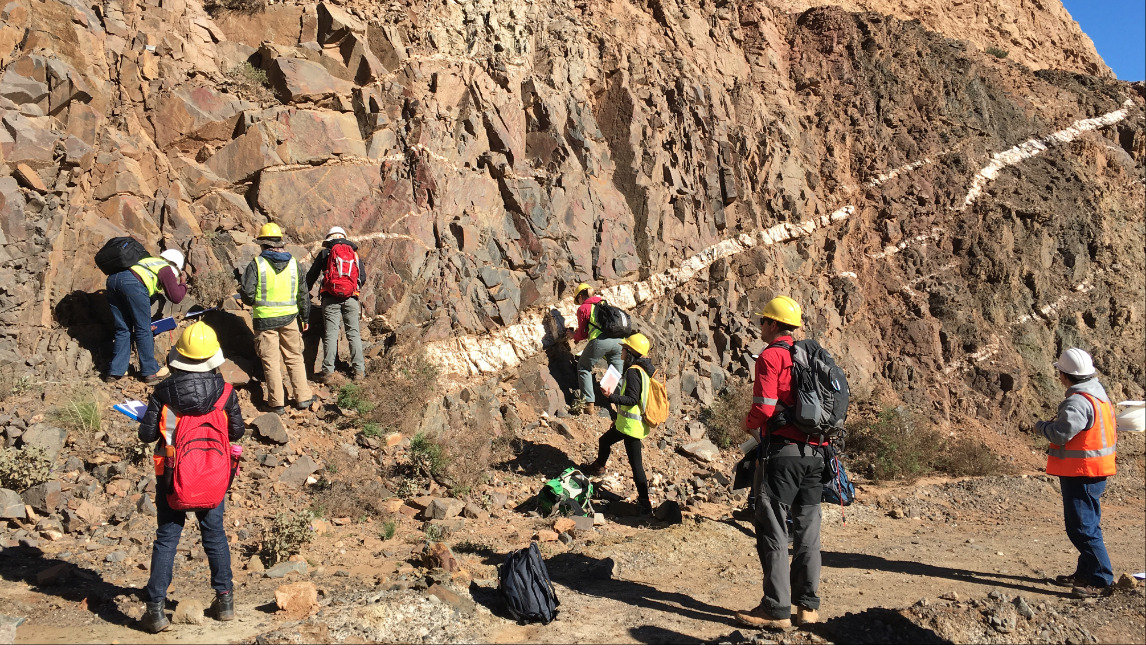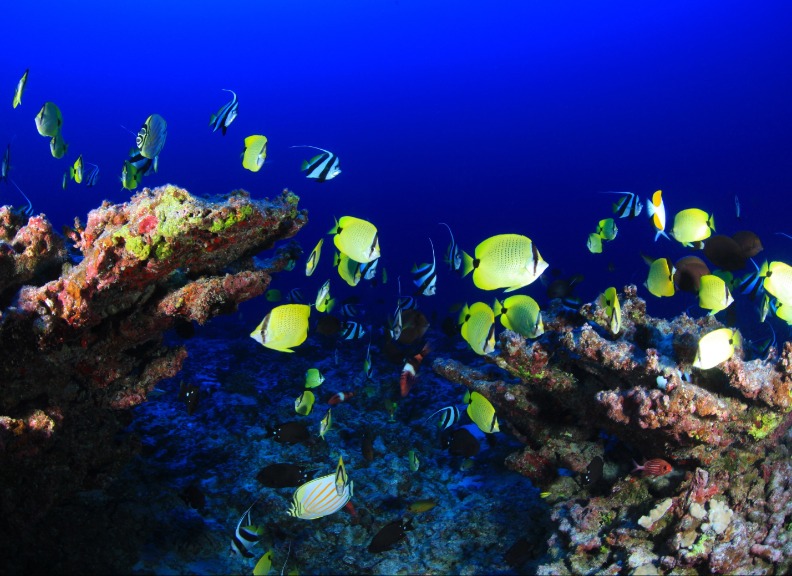School of Earth Sciences
Discovering Earth and beyond through time
UWA’s School of Earth Sciences is a group of internationally recognised educators and researchers who are excited by the diverse and complex ancient geological and modern environments of Earth and other planets in our solar system. Western Australia has a geological record of ancient processes and environments over the last 4.5 billion years including the record of early life evolution and major mineral, petroleum and groundwater resources. Our coastline is a natural laboratory to resolve important questions related to complex coastal systems including carbonate reefs, and the record of recent climate change in these systems.
Geoscience draws on the fundamental sciences to understand how our planet works, and is set apart by the time scales and spatial scales on which geological processes operate. Our activities cover a wide range of fields of study including geology, geophysics, geochemistry, geobiology, geochronology, computer modelling and data analytics.We integrate data from these fields to solve geoscience problems as we seek to advance our fundamental understanding of Earth processes through time. Many interesting problems relate to the formation of important natural resources for society’s use and using our scientific understanding for predicting future change.
The School occupies one of the oldest iconic buildings on campus, but within its walls our geoscientists use the latest instruments and digital technology in their projects. We provide a vibrant environment for research and high-quality training for our students, and have a long history of successful industry and government geoscience collaboration.
Our research programs focus on providing practical experience, including field-based work and problem-solving skills at undergraduate, honours and postgraduate levels. Students also have access to sophisticated instruments, industry-standard software, as well as the opportunity to learn from, and network with, industry professionals.
Research
We work on a range of fundamental and applied research and teaching in the School of Earth Sciences, providing an impressive array of opportunities for staff and students.
Higher Degree by Research opportunities and projects
Students who are interested in research projects should visit the Higher Degree by Research Application Portal and browse the Project Opportunities section.
All current projects and their supervisors are available in this Portal. This includes PhD and Master by research projects and scholarships. You can search by research areas or a specific school, see available scholarships and contact prospective supervisors. You can also directly contact a potential supervisor using the discipline links (above).
Our courses
Our strong and diverse research culture and dedication to learning supports students to develop their knowledge, technical and research skills in undergraduate majors and postgraduate courses for professional employment.
- Bachelors
-
Majors
Science graduates are in demand worldwide with job opportunities across a range of sectors. We offer majors in the comprehensive bachelor’s degrees that provide flexibility and the opportunity to undertake two majors. These majors focus on core competencies and industry-relevant skill development.
Extended MajorsPursuing an extended major in the specialised Bachelor of Earth Sciences will also provide you with a strong grounding in core competencies and industry-relevant skills. The extended majors have a carefully designed study plan to provide depth and breadth to meet career aspirations.
Honours in Earth ScienceThe Bachelor of Science Honours year is a great opportunity to develop more advanced technical skills and research skills (e.g. critical thinking, data analysis and writing) via a supervised project of your choice. Both sets of skills enhance employability in geoscience as well as providing a pathway to higher study and research career opportunities.
Combined Bachelor’s and Master’s (CBM)The Combined Bachelor's and Master's (CBM) is a four-year accelerated program for high-performing students. Over your first three years, you'll complete an extended major and a semester of more advanced study, followed by a final year of postgraduate study. On completion, you'll be awarded both a full bachelor's and a full master's degree in four years (2.5 + 1.5 years).
- Bachelor of Earth Sciences & Master of Geoscience (CBM)
- Bachelor of Earth Sciences & Master of Oceanography (CBM)
- Bachelor of Marine Science & Master of Oceanography (CBM)
The Geology Major within the Bachelor of Science, and the Earth Science Specialisation within the Bachelor of Science (Honours), has been endorsed by the Australian Institute of Mining and Metallurgy Board. Graduates of these courses are eligible to apply for Associate, Member and Fellow grades of AusIMM membership, with the appropriate level of experience.
35cd905c-6e2e-4809-b377-4db44fd226bb
- Masters
-
A master’s degree enables you to develop specialist skills and advanced knowledge in your field of choice. A master’s qualification can help you stand out from the crowd in a competitive job market. We offer an extensive range of master’s degrees in a number of related areas of study (1.5–2 years). You may also undertake a research project focusing on a topic that you choose.
- Master of Energy Geoscience
- Master of Geoscience
- Master of Hydrogeology
- Master of Oceanography
- Master of Ore Deposit Geology
More advanced study with a major research component provides an important opportunity to gain strong research skills to enhance employment opportunities, e.g. in industry or government, or create new opportunities to pursue a research career in government agencies and universities. The Master of Science is a one-year course that is ideal for students who want to advance their skills within a short timeframe, and also opens the pathway to PhD.
- Master of Science (by thesis and coursework)
- Master of Philosophy (MPhil)
- Doctor of Philosophy (PhD)
For honours and master’s research projects download the full lists below:
School of Earth and Oceans and Master’s Research Projects 2026
- Micro-credentials
-
Our micro-credentials focus on skills that are in high demand by employers and industry – they are short and affordable so you can easily fit them into your lifestyle, with the flexibility to pick and choose what works for you. During the year, micro-credentials are offered in teaching earth sciences, hydrogeology, structural geology (including a 1-week fieldtrip) and geophysical exploration.
Update, upskill or reskill; complete a one-off micro-credential or stack them up and convert into credit towards an undergraduate or postgraduate course – the choice is yours.
Find out more about the micro-credentials offered in Earth Sciences at UWA Plus.
- Scholarships
-
A range of scholarships are available to UWA students. Information for undergraduate and postgraduate coursework students and postgraduate research students is available here.
Specifically for geoscience, these scholarships are offered on an annual basis:
News
-

Research boosts search for new mineral deposits
Thu, 19 Feb 2026
-

How the myth of ‘aqua nullius’ still guides Australia’s approach to groundwater
Thu, 18 Dec 2025
-

Centres tackling challenges faced by society, environment and industry
Thu, 11 Dec 2025
Edward de Courcy Clarke Earth Science Museum
This interactive museum allows visitors of all ages to discover and explore earth sciences. Several thousand visitors come to the Museum each year to learn about past environments, plants and animals, examine beautiful crystals, and enjoy rare experiences such as touching a meteorite, and handling some of Western Australia’s unusual minerals. The interactive sandbox is a great way to learn about Earth’s surface processes.










